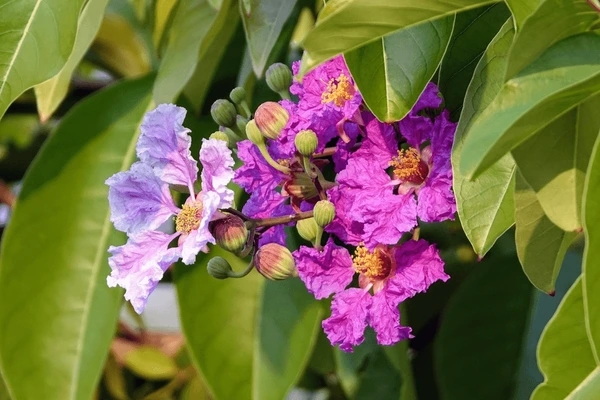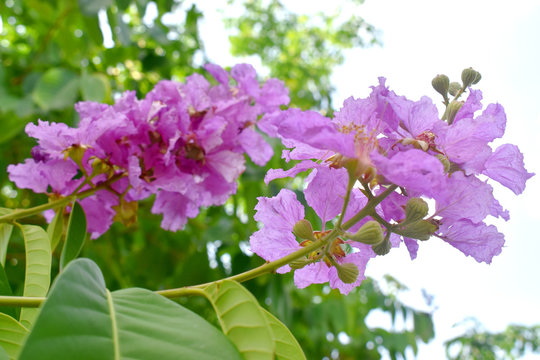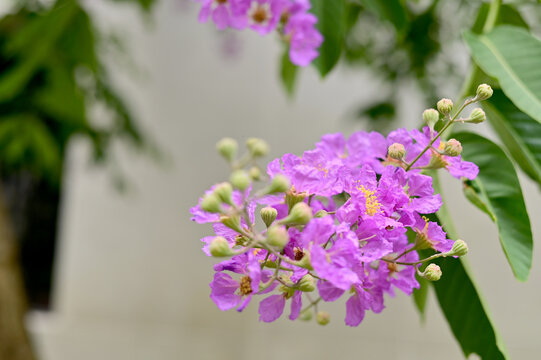Content Menu
● Introduction to Banaba Leaf Extract
>> Traditional Uses
>> Modern Applications
● Active Compounds and Pharmacology
>> Pharmacological Effects
● Clinical Evidence and Trials
>> Challenges and Future Directions
● Weight Management and Other Health Benefits
>> Anticancer and Antimicrobial Effects
● Synergistic Effects with Other Compounds
● Safety and Side Effects
● Conclusion
● FAQ
>> 1. What is Banaba Leaf Extract Used For?
>> 2. How Does Banaba Leaf Extract Lower Blood Sugar?
>> 3. Are There Any Side Effects of Banaba Leaf Extract?
>> 4. Can Banaba Leaf Extract Be Used for Weight Loss?
>> 5. Is Banaba Leaf Extract Safe for Long-Term Use?
● Citations:
Banaba leaf extract, derived from the Lagerstroemia speciosa plant, has gained significant attention in recent years due to its potential health benefits, particularly in managing blood sugar levels and supporting weight loss. This article explores the reasons why banaba leaf extract is considered one of the best herbal formulations for pharmaceuticals, highlighting its active compounds, traditional uses, and modern applications.

Introduction to Banaba Leaf Extract
Banaba leaf extract is primarily known for its active ingredient, corosolic acid, which is believed to mimic insulin by facilitating the transport of glucose into cells, thereby lowering blood sugar levels. This property makes it a valuable component in the management of type 2 diabetes.
Traditional Uses
Traditionally, banaba leaves have been used in Southeast Asian countries like the Philippines and Thailand for treating diabetes and hyperglycemia. The leaves are often consumed as tea infusions, which are believed to have a hypoglycemic effect similar to insulin.
Modern Applications
In modern times, banaba leaf extract is used not only for diabetes management but also as an ingredient in weight loss products. Its ability to support weight management and improve cardiovascular health by reducing cholesterol levels and enhancing blood circulation makes it a versatile herbal formulation.
Active Compounds and Pharmacology
The primary active compound in banaba leaf extract is corosolic acid, a triterpenoid glucoside that facilitates glucose transport into cells, thereby reducing blood sugar levels. Besides its anti-diabetic properties, corosolic acid also exhibits antioxidant, anti-inflammatory, and antiviral activities.
Pharmacological Effects
1. Antidiabetic Effects: Corosolic acid helps in lowering blood glucose levels by enhancing glucose uptake in cells, making it beneficial for individuals with type 2 diabetes. Studies have shown that corosolic acid can decrease blood sugar levels within 60 minutes in human subjects, with effects lasting for several hours[1][10].
2. Antioxidant Activity: Banaba leaf extract is rich in antioxidants, which protect the body from oxidative stress caused by free radicals. This antioxidant activity contributes to its overall health benefits, including protection against cell damage and inflammation[3][10].
3. Anti-inflammatory Activity: Corosolic acid possesses anti-inflammatory properties, which can help reduce inflammation and associated conditions. This is demonstrated in animal studies where corosolic acid effectively reduced inflammation in various models[5][10].
Clinical Evidence and Trials
While there are several studies supporting the efficacy of banaba leaf extract in managing diabetes, more quality clinical trials are needed to fully establish its benefits. Some small-scale studies have shown promising results in reducing fasting blood glucose levels and improving glucose tolerance.
Challenges and Future Directions
Despite the potential benefits, the lack of large-scale clinical trials and standardization in banaba leaf extract preparations poses challenges for its widespread acceptance in pharmaceutical applications. Future research should focus on conducting rigorous clinical trials to validate its efficacy and safety. Additionally, exploring synergistic effects with other herbal extracts or compounds could enhance its therapeutic potential[4][8].

Weight Management and Other Health Benefits
Banaba leaf extract is also recognized for its role in weight management. Corosolic acid stimulates the adiponectin hormone, which inhibits fatty acid synthesis and enhances its utilization, leading to weight loss[2]. Additionally, banaba leaf extract has been associated with improved cardiovascular health by reducing cholesterol levels and enhancing blood circulation[3][7].
Anticancer and Antimicrobial Effects
Recent studies suggest that banaba leaf extract may have anticancer properties by promoting programmed cell death in certain cancer cells. It also exhibits antibacterial and antiviral activities, providing potential protection against infections[7]. Furthermore, its antithrombotic effect may help prevent blood clots, reducing the risk of high blood pressure and stroke[7].
Synergistic Effects with Other Compounds
Research has shown that combining banaba leaf extract with other compounds can enhance its efficacy. For instance, a combination of banaba leaf extract with probiotics like Lactobacillus mixtures has been found to inhibit weight gain and fat tissue expansion in mice[8]. This synergistic approach could lead to more effective formulations for weight management and metabolic health.
Safety and Side Effects
Banaba leaf extract is generally considered safe with minimal side effects. However, some users may experience gastrointestinal issues like loose stools, especially when consuming high doses[4][5]. Long-term safety data is limited, and it is advisable to consult a healthcare provider before using banaba leaf extract, especially for prolonged periods.
Conclusion
Banaba leaf extract is a promising herbal formulation with significant potential in pharmaceutical applications, particularly in diabetes management and weight loss. Its active compound, corosolic acid, offers a range of health benefits, including antioxidant and anti-inflammatory effects. However, further clinical trials are necessary to fully exploit its therapeutic potential.

FAQ
1. What is Banaba Leaf Extract Used For?
Banaba leaf extract is primarily used for managing blood sugar levels and supporting weight loss. It is also known for its antioxidant and anti-inflammatory properties.
2. How Does Banaba Leaf Extract Lower Blood Sugar?
Banaba leaf extract contains corosolic acid, which helps transport glucose into cells, thereby lowering blood sugar levels and mimicking the action of insulin.
3. Are There Any Side Effects of Banaba Leaf Extract?
Common side effects are minimal, but some users may experience gastrointestinal issues like loose stools. It is advisable to consult a healthcare provider before using banaba leaf extract.
4. Can Banaba Leaf Extract Be Used for Weight Loss?
Yes, banaba leaf extract is often used as an ingredient in weight loss supplements due to its potential to support metabolism and appetite control.
5. Is Banaba Leaf Extract Safe for Long-Term Use?
While generally considered safe, long-term safety data is limited. It is recommended to use banaba leaf extract under medical supervision, especially for prolonged periods.
Citations:
[1] https://pmc.ncbi.nlm.nih.gov/articles/PMC3468018/
[2] https://esther-mall.com/blogs/news/effects-of-coleus-banaba-leaf-extract-from-blood-sugar-to-weight-control-3-benefits-of-banaba-leaf
[3] https://www.jairamdass.com/product/banaba-leaves-extract/
[4] https://pmc.ncbi.nlm.nih.gov/articles/PMC5067667/
[5] https://www.drugs.com/npp/banaba.html
[6] https://www.jstage.jst.go.jp/article/jnsv1973/45/6/45_6_791/_article
[7] https://www.healthline.com/nutrition/banaba-leaf
[8] https://www.mdpi.com/2079-7737/13/12/1047
[9] https://www.rialpharma.it/en/banaba-leaf/
[10] https://pubmed.ncbi.nlm.nih.gov/22095937/






























